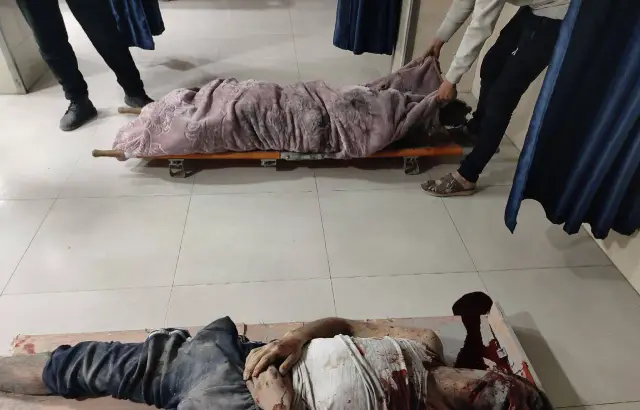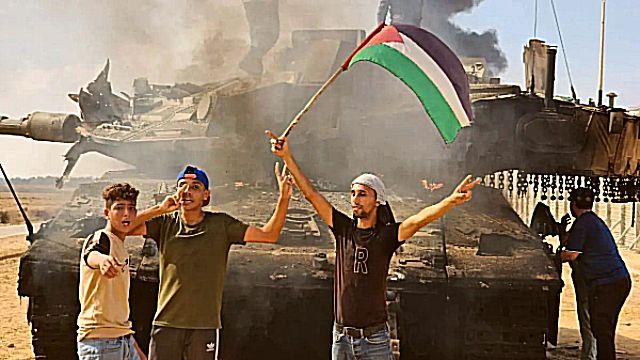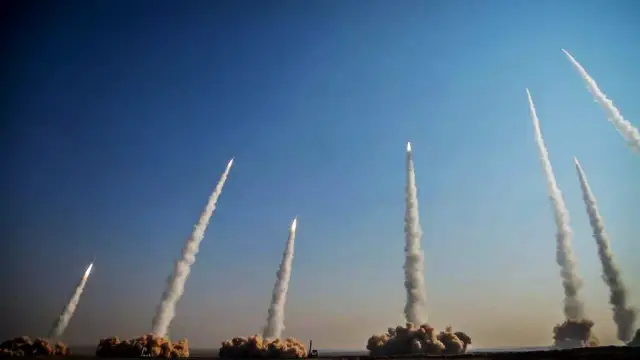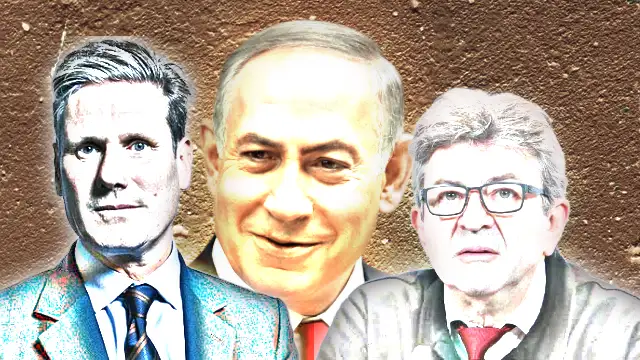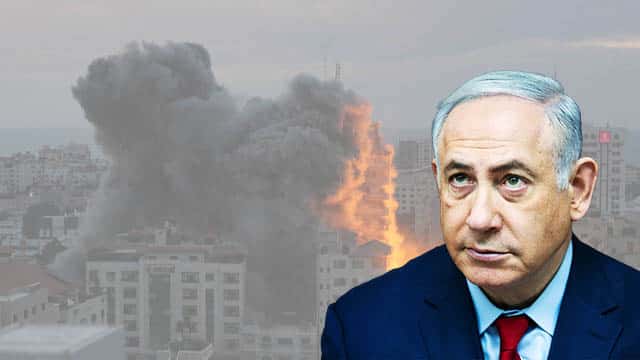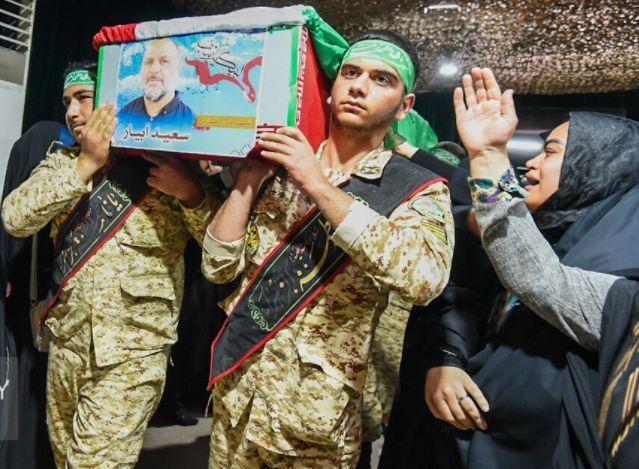Israeli warplanes launched widespread attacks across the Gaza Strip in the early hours of Tuesday, March 18th, effectively ending a ceasefire agreement that had been in place since January 2025. The renewed bombardment has reportedly claimed at least 170 Palestinian lives within hours, according to medical sources from the besieged enclave.
The Israeli attacks, which began in the early hours of Tuesday, targeted multiple areas across northern, central and southern Gaza, including civilian infrastructure, schools housing displaced persons, and encampments for those who had fled previous fighting.
A senior Israeli official told Israel’s Channel 13 that “the ceasefire has ended”, while Prime Minister Benjamin Netanyahu issued a statement indicating that military operations would intensify with time. The resumption of hostilities comes just weeks after the signing of a fragile truce that had brought a temporary halt to 15 months of devastating conflict.
Widespread casualties reported
The Civil Defence spokesman Mahmoud Basal initially reported at least 15 deaths and dozens of injuries from the first wave of Israeli attacks in Gaza. However, within three hours, Palestinian medical sources indicated the death toll had risen to 170, with reports of more than 150 wounded.
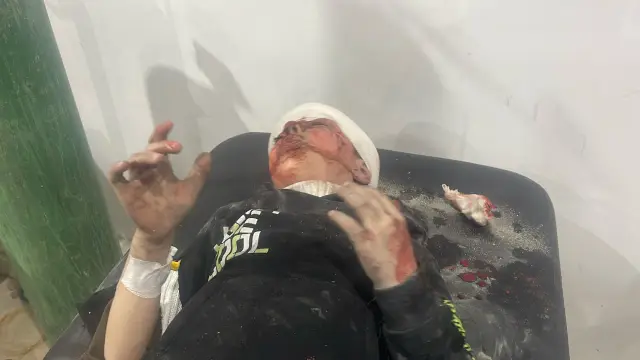
Among the casualties were numerous children. Baptist (Al-Maamadani) Hospital reported receiving eight fatalities, including five children, from bombings in Gaza City. The Kuwait Specialised Field Hospital received five victims, including two children, and dozens of injuries resulting from strikes on displacement camps in the Mawasi area of Khan Younis.
Undersecretary of the Interior Ministry in Gaza Major General Mahmoud Abu Watfa was among those killed in the attacks.
Pattern of Israeli attacks in Gaza
According to journalist Yousef Fares reporting from within Gaza, Israeli airstrikes targeted:
- Areas near Al-Tabi’in Sharia School and Al-Rafi’i School in northern Gaza
- Three separate locations in the Al-Zaytoun neighbourhood
- A house in the Al-Karama area near the Omar Mosque
- A residence in central Deir al-Balah
- Multiple displaced persons’ encampments in Khan Younis, where fires engulfed tents
Reports indicate that at least seven homes were bombed in the central Gaza Strip, including properties belonging to the Zahir, Masmah, Mazid, al-Batran, al-Daalis, and Abu Saif families across Deir al-Balah, al-Bureij, and al-Nusseirat.
Humanitarian crisis intensifies
The renewed violence comes against the backdrop of an already catastrophic humanitarian situation. The Gaza Strip’s Union of Municipalities had issued a statement days before the attacks highlighting the desperate conditions.
“Amid the ongoing humanitarian catastrophe in the Gaza Strip due to the devastating ‘israeli’ aggression for the past 16 months, we affirm the urgent need to provide sufficient and sustainable supplies of water and electricity,” the statement read.
“This need has become even more critical after the central water desalination plant was disabled due to the ‘israeli’ occupation cutting off its electricity supply, threatening Palestinian lives and exacerbating health and environmental crises,” it added.
The municipal statement continued: “We condemn the recent decision by the ‘israeli’ minister of energy and infrastructure and the continuous electricity cuts to the Gaza Strip since the beginning of the aggression, which have deprived the population of their primary energy source. This has caused a paralysis in essential services, particularly in healthcare, water, and sanitation, leading to the shutdown of desalination plants, sewage treatment facilities, and numerous municipal services, posing a severe risk of disease outbreaks.”
“We stress that the continuation of these punitive policies against civilians constitutes a blatant violation of international humanitarian law and worsens the suffering of Gaza’s residents, who are facing the worst humanitarian crisis in history. Furthermore, the ban on the entry of construction materials, spare parts, equipment, and alternative energy systems has severely limited the municipalities’ ability to find effective solutions, deepening the crisis and threatening the collapse of essential services,” it further read.
The violations of human rights in Gaza continued despite the Israeli Defense Forces (IDF, popularly known as Israeli Occupation Forces or IOF) wishing Muslims at the beginning of the holy month of Ramadan. In the month of Ramadan, only the IDF shot and killed the hundredth victim of the ceasefire.
Even before Tuesday’s strikes, Gaza’s crossings remained closed, preventing the entry of food, aid and medical supplies to the territory’s 2.3m residents.
Resistance groups respond
Palestinian organisations issued swift condemnations of the renewed Israeli offensive, holding the Netanyahu government responsible for violating the ceasefire agreement.
Hamas released a statement reading: “Netanyahu and his Nazi government resume their aggression and genocidal war against defenseless civilians in the Gaza Strip. We hold the criminal Netanyahu and the Nazi-zionist occupation fully responsible for the repercussions of the treacherous aggression on Gaza, and for the defenseless civilians and our besieged Palestinian people, who are subjected to a brutal war and a systematic policy of starvation (sic).”
The statement continued: “Netanyahu and his extremist government have decided to overturn the ceasefire agreement, exposing the prisoners in Gaza to an unknown fate. We demand that the mediators hold Netanyahu and the zionist occupation fully responsible for violating and overturning the agreement (sic).”
Islamic Jihad stated: “The announcement by war criminal Benjamin Netanyahu and his government to resume aggression against our people in the Gaza Strip is a continuation of their genocidal war, in full view of the entire world, after deliberately thwarting all efforts to reach a ceasefire (sic).”
The Popular Front for the Liberation of Palestine (PFLP) declared: “The occupation planned in advance to resume massacres and genocidal war, and everyone must act to stop it. The occupation committed its crimes and massacres against our people in the Gaza Strip, targeting homes and innocent civilians, with prior planning and American partnership and support, as part of the comprehensive genocide war it is waging against our people.”
“The Arab peoples and the free people of the world must take urgent action in all fields to condemn these brutal crimes and besiege the embassies of the occupation and its American partner,” the PFLP further added.
Yemen’s Ansarallah Political Bureau also issued a statement condemning the attacks: “We condemn in the strongest terms the resumption of the criminal zionist aggression against Gaza and the perpetration of new horrific massacres. The dangerous ‘israeli’ escalation against Gaza comes amid the ongoing blockade and starvation of nearly 2 million Palestinians (sic).”
Political context
The resumption of hostilities comes just two months after Donald Trump’s inauguration as US president in January 2025, which analysts have suggested emboldened the Netanyahu government. The original conflict, which began in October 2023 following Hamas attacks on Israel, had resulted in over 48,000 Palestinian casualties according to UNOCHA estimates before the January ceasefire. Over 13,000 of those killed were children.
Critics have labelled Israel’s 15-month military campaign in Gaza a “genocide” – an accusation that has gained traction in international forums but which Israel and its allies, the collective West under the aegis of the US, vehemently deny.
The collapse of the ceasefire agreement, negotiated through international mediation by Qatar and other parties after months of diplomatic effort, represents a significant setback for peace prospects in the region and raises fears of another prolonged cycle of violence in the already devastated territory.

